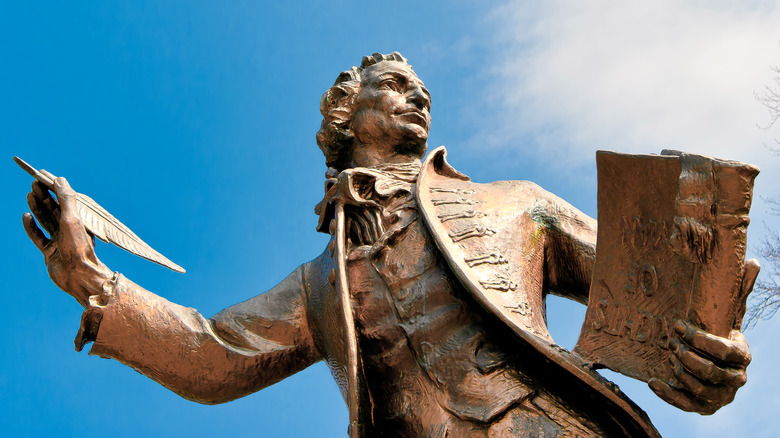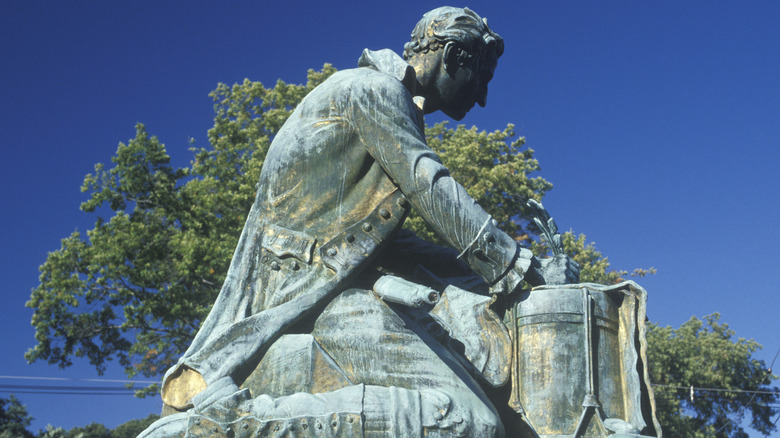What Really Happened To Founding Father Thomas Paine's Body?
Grave robbing has unfortunately been a common facet of the post-funerary experience for thousands of years. The incentives for this act have varied, from absconding with items buried with the deceased to the theft of the remains themselves. Robbers who sought the latter generally did so in order to sell their finds to medical schools, which for decades had little interest in the origins of their new specimens.
In other cases, the identity of the remains was the principal reason for their theft as celebrities, politicians, and other historical figures endured postmortem abuse. Some of the most famous victims include Alexander the Great, Princess Diana (unsuccessfully), and Charlie Chaplin. This was also the case for one of America's principal founders, Thomas Paine. Upon his death, one of Paine's fiercest ideological rivals was evidently so unable to part with him that he resorted to exhuming the author (via the Library of Congress).
Thomas Paine's bones were sold to any who would buy them
Thomas Paine is best remembered for his book "Common Sense," in which he rebukes the concept of monarchy as a tyrannical system from which separation is the only sensible course. The rhetoric he injected into public discourse is credited as one of the primary influences on Americans seeking independence from Britain as opposed to reconciliation (via History). However, his work was not universally praised. William Cobbett, an English newspaper editor, offered a fierce defense of the crown in his early career. But although Paine was initially a target of ridicule from Cobbett, over time he began to see merit in the former's work.
After Paine's impoverished death, Cobbett saw the meager state of his former rival's grave and decided to steal his bones and bring them to Britain (via New York Almanack). He planned to enshrine Paine and use his presence as a catalyst for the British people to renounce the crown. This failed, as the public was neither interested in paying respects to the man who lost them America nor in endorsing a grave robber. In the Citizen Paine Restoration Initiative's recent pursuit of his remains, several people have claimed to possess them (the Cobbett family having sold them off to make ends meet). While most leads have been isolated to Britain, there is at least one claim that Paine's skull wound up in Australia (via Los Angeles Times).

